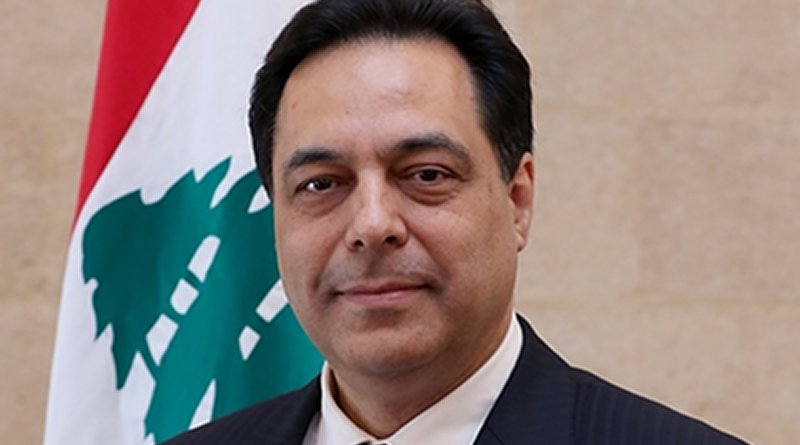New Lebanese Cabinet Approves Economic Policy Blueprint
By Arab News
By Najia Houssari
Financial Prosecutor Judge Ali Ibrahim on Thursday met with the Banking Control Commission of Lebanon (BCCL) to discuss claims that the owners of five Lebanese banks had moved personal funds worth $2.3 billion abroad.
The meeting took place on the same day as Lebanon’s new Cabinet approved a policy statement aimed at rescuing the debt-ridden country from one of its worst economic crises in decades. The ministerial statement will now be submitted for discussion at a session of Parliament planned for next week.
Parliament Speaker Nabih Berri on Wednesday revealed the bankers’ transfers and expressed his “concern over the fate of the depositors’ money.”
The BCCL has described the information on the transfers as “inaccurate” and pointed out that “all banks have made transfers, and the law does not have the right to learn who the owners are.”
Berri is opposed to any attempt by banks to impose capital controls on clients’ deposits despite savings restrictions and limits on dollar transfers abroad having been in place since November last year.
Meanwhile, activists in the country’s civil movement have called for new street protests against the ministerial statement which they have branded as “a revised version of the previous government’s data that does not take peoples’ demands into consideration.”
Lebanese Prime Minister Hassan Diab described the statement as “the product of facts and studies,” adding that “pragmatism has put us before facts that cannot be ignored.” Hezbollah and its allies participated in the Cabinet meeting which approved the statement, but opposition parties boycotted it.
Information Minister Manal Abdel Samad said: “The Cabinet approved its statement unanimously on Thursday and President Michel Aoun has requested to add the issue of the Syrian refugees’ return to their country in the text of the statement as some countries oppose their return until now.”
Speaking on the eve of the ministerial session, the UN’s special coordinator in Lebanon, Jan Kubitsch, who monitors the Lebanese government, said: “In order for Lebanon to gain UN support, it needs a government that acts on behalf of the people, listens to their demands, and establishes a clear road map.”
Lebanon is facing an unprecedented economic crisis amid demonstrations throughout the country against corruption and the political elite. The collapse of the lira against the dollar and a loss of liquidity in hard currency has hit the national coffers hard, while unemployment has risen as a result of hundreds of institutions suspending operations.
Abdel Samad said the statement had “approved the implementation of the electricity plan with some modifications if necessary, which is a technical issue.”
The electricity sector is the first item that the international community has demanded that Lebanon reforms. The state loses $273,000 an hour on electricity production and the annual losses of the sector are estimated at more than $2.032 billion.
On the calls for fresh protests, former Lebanese Prime Minister Najib Mikati said: “There are attempts to drag the country into sectarian and regional strife, similar to the beginnings of the war.”
In a tweet, the head of the Progressive Socialist Party, Walid Jumblatt, said: “There is no immunity for those who incite strife no matter who they are.”
Former member of Parliament, Misbah Ahdab, said: “Neither Ziad Aswad (Lebanese MP) nor anyone superior to him can ask a person from Tripoli what he is doing in Keserwan.”
The mufti of Tripoli and northern Lebanon, Sheikh Malik Al-Shaar, warned of “militia practices that strike at the very heart of national unity.”
In a statement, the Free Patriotic Movement rejected “meddling in individual freedoms” and called for a “need for restraint.”

